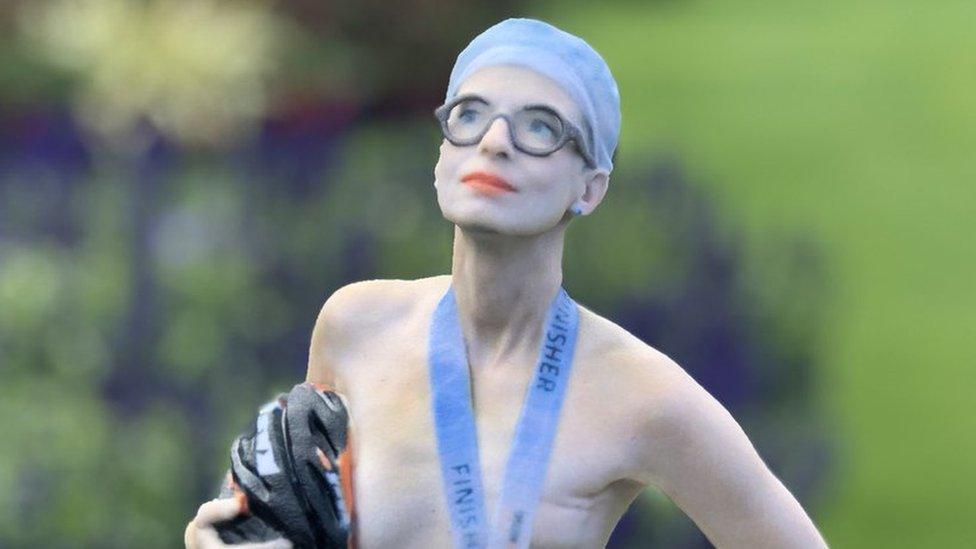Former surgeon wants NHS MeToo movement for sexual harassment
- Published
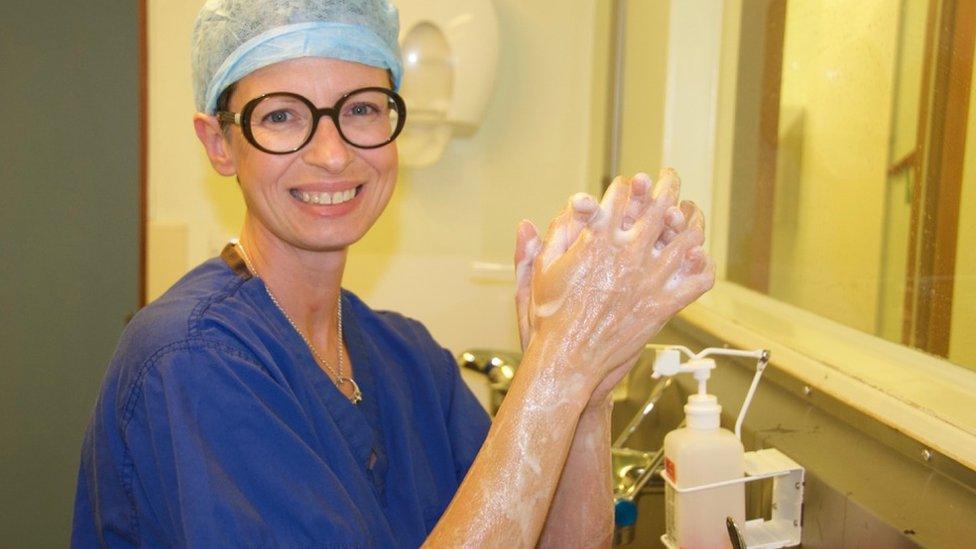
Dr O'Riordan said she experienced sexual harassment most weeks in some jobs
A former breast cancer surgeon has said the NHS needs a MeToo movement because of sexual harassment in hospitals.
Dr Liz O'Riordan said she experienced sexual harassment from colleagues on a weekly to monthly basis in some of her jobs as a junior doctor.
The 48-year-old retired in 2018 after her own breast cancer diagnoses.
In her first week as a junior doctor, she recalled a colleague asking if she "got an erection" after removing an 11-year-old boy's appendix.
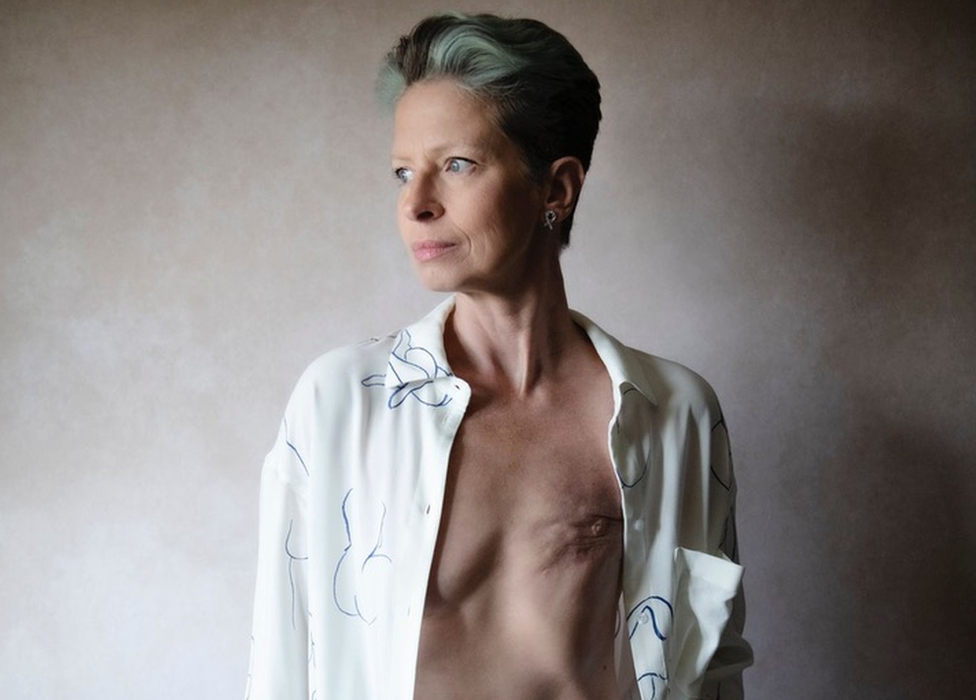
Dr Liz O'Riordan was forced to retire in 2018 because she could not use her left arm properly following cancer treatment
"We need to be able to say this is not good enough," said Dr O'Riordan, who lives in Suffolk and previously worked at Ipswich Hospital.
"When you are a trainee in a practical field, you are relying on your boss to let you operate to show you how to cut; it is a craft that you learn.
"Basically you are naked in scrubs stood from shoulder, to hip, to knee, next to someone all squeezed in; a lot of body contact; you are relying on them to let you cut, and if you call them out they may say 'I don't like you, you are not coming to theatre today'.
"It's very, very, very hard to stand up for yourself and say 'that is not on' and the minute you let them get away with it, it is accepted and they can carry on getting away with it."
Dr O'Riordan finished medical school and began her career as a junior doctor in south Wales in 1998, working, she said, up to 100 hours per week.
She started surgical training in 2002 and became a consultant surgeon in 2013.
In 2015 she found herself on the other side of the operating table, undergoing a mastectomy, chemotherapy and radiotherapy to treat breast cancer - and her ovaries were removed following a recurrence in 2018.
She was forced to retire that year because she could not use her left arm properly following her final rounds of surgery and radiotherapy.
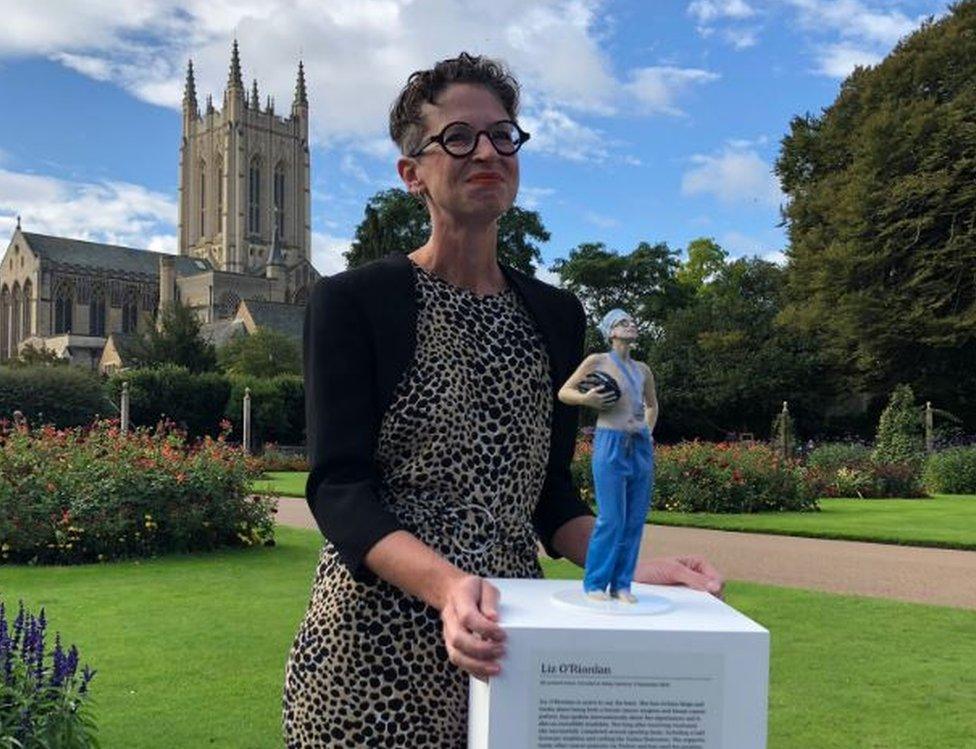
Dr O'Riordan unveiled a statue of herself in Bury St Edmunds' Abbey Gardens in 2018
Dr O'Riordan says she suspects sexual harassment is still prevalent in hospitals because of the personalities the profession attracts, the authority it commands for senior staff and the "easy access" in coffee rooms and in corridors.
She added: "I have worked with some incredible men - my husband is one of them - who are wonderful, kind, incredible human beings and it was more when I was a junior because I was young and naïve and unsure of myself - it's a small number of people; but their impact is huge."
Dr O'Riordan said she would like to see an improved scheme of male and female mentors in hospital who staff can trust "in confidence".
'Elephants in rooms'
She now works as an author, public speaker and podcaster and details her experiences in a new memoir.
The former consultant hopes the book illustrates how hard it is to be a doctor but also provides support to current NHS workers who might be suffering depression or receiving cancer treatment.
"The more we can get people talking about the elephants in the room, the easier it will be for people to come forward," she said.
Dr O'Riordan, who lives near Bury St Edmunds, and her husband Dermot rode on a tandem bicycle on Sunday for St Nicholas Hospice Care dressed as Disney Pixar characters Mr and Mrs Incredible.
He works as a consultant surgeon for the West Suffolk NHS Foundation Trust.
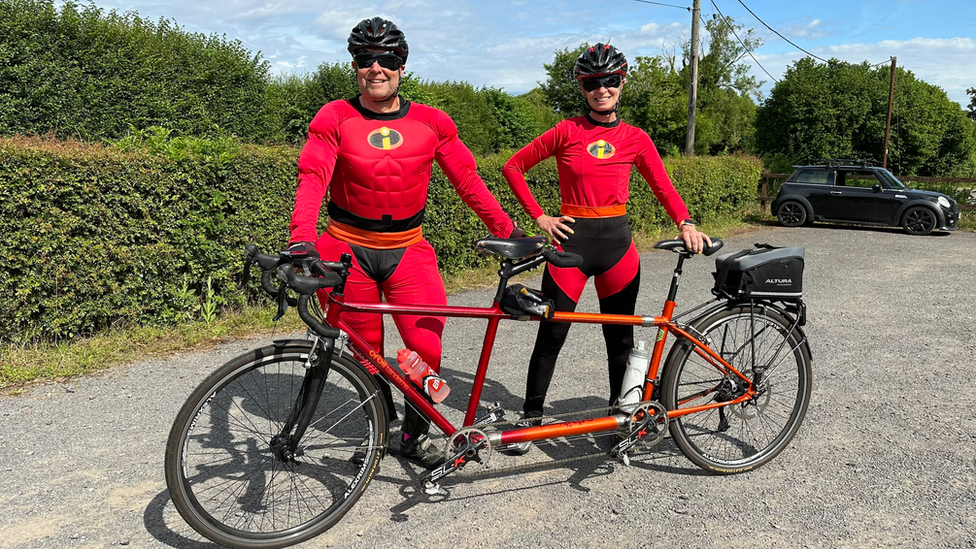
Dermot and Liz O'Riordan raised money for St Nicholas Hospice Care with their tandem cycle on Sunday
The president of the Royal College of Surgeons of England (RCS England) last year told The Times newspaper that colleagues needed to "speak up and challenge sexism", external after allegations of sexual assault made by female surgeons, external.
Of 800 people who told an RCS England review in 2021, external that they had suffered harassment or abuse during their career, a quarter said they reported it to someone.
Navina Evans, chief workforce officer at NHS England, said it had "established a dedicated team" to ensure staff who experience "violence and abuse" were supported.
She said: "All NHS trusts and organisations have measures in place to ensure immediate action is taken in any cases reported to them and I strongly encourage anyone who has experienced any misconduct to come forward, report it and seek support."
Caroline Waterfield, director of development and employment at NHS Employers part of the NHS Confederation, said "everyone should be treated with dignity and respect" in the workplace.
Ms Waterfield added: "We encourage people to speak up like Dr Liz has done, so we can continue to eradicate all forms of harassment."
Dr O'Riordan said none of her experiences of sexual harassment took place while working at Ipswich Hospital.
Under the Knife: Life Lessons from the Operating Theatre was published on 6 July by Unbound.

Follow East of England news on Facebook, external, Instagram, external and Twitter, external. Got a story? Email eastofenglandnews@bbc.co.uk, external or WhatsApp 0800 169 1830
Related topics
- Published23 February 2020
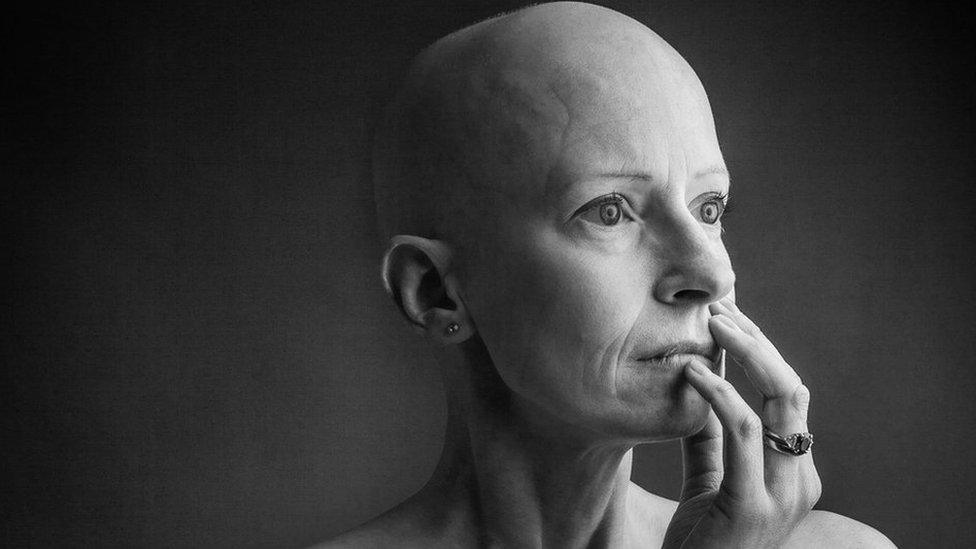
- Published20 April 2019
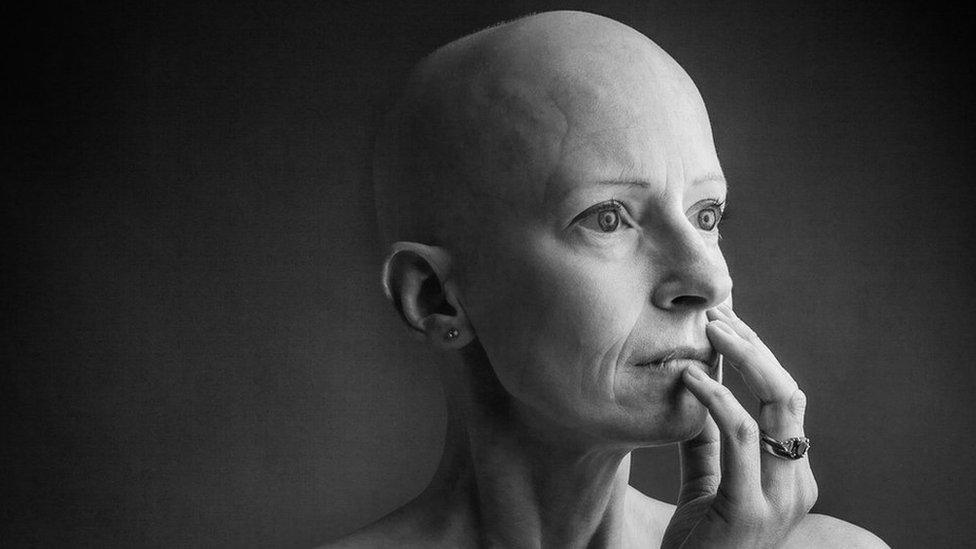
- Published10 September 2018
